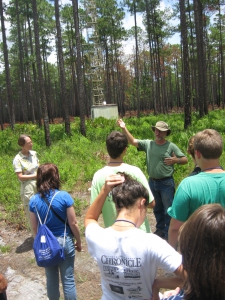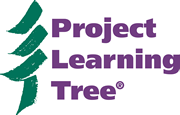Teaching about Climate Change
These activities draw on a variety of learning theories and teaching strategies to help educators actively engage students in learning about a controversial, social, and scientific issue.
We provide activities that help students gain scientific literacy, understand the nature of science, and apply this to climate change scenarios (Zilder et al., 2005). Our partnership with researchers enabled us to design activities that use datasets and models that duplicate the ongoing work to understand climate change and forest management options.
The process of addressing climate change will not lead to a single best answer, but will likely require that people use skills of systems thinking, critical thinking, and group process as they work together.
Many of the activities follow a problem-based learning approach with small group exercises designed to elicit skills in collaboration and higher order thinking (Barrows & Kelson, 1995). Each activity is designed to guide learners through an experience and reflection cycle where they process, generalize, and apply the key concepts (Kolb, 1984).
This module can assist you in helping students understand the following:
- Why a variety of perspectives of climate change exist.
- How to build consensus with people who represent a variety of perspectives.
- How to explore underlying beliefs and address missing information.
- How to respect differences of opinion.
- How to find common ground of agreement.
- The scientific evidence for climate change.
- Potential impacts of climate change on ecosystems.
- The limitations and purpose of climate models and projections.
- The nature of science.
- How data are analyzed and used for inferences.
- Why policy recommendations can be sources of controversy.
- Where to find accurate answers to questions about climate change.

The module background provides more information about this topic.
References
Barrows, H. S., & Kelson, A. C. (1995). Problem-based learning in secondary education and the problem-based learning institute (Monograph 1). Springfield, IL: Problem-Based Learning Institute.
Kolb, D. (1984). Experiential learning as the science of learning and development. Englewood Cliffs, NJ: Prentice Hall.
Zeidler, D. L., Sadler, T. D. Simmons, M. L. & Howes, E. V. (2005). Beyond STS: A research-based framework for socioscientific issues education. Science Education, 89(3), 357–377.
